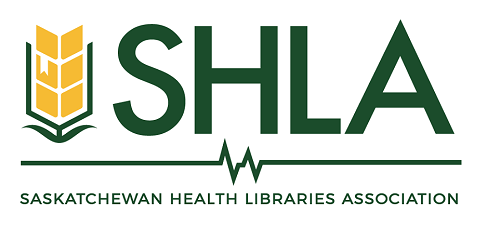Meeting Date: July 24, 2019
Presenter: Michelle Dalidowicz
Citation: Barr-Walker J, Sharifi C. Critical librarianship in health sciences libraries: an introduction. Journal of the Medical Library Association : JMLA. 2019;107(2):258-64. DOI: 10.5195/jmla.2019.620
https://www.ncbi.nlm.nih.gov/pmc/articles/PMC6466494/
Article Abstract:
The Medical Library Association recently announced its commitment to diversity and inclusion. While this is a positive start, critical librarianship takes the crucial concepts of diversity and inclusion one step further by advocating for social justice action and the dismantling of oppressive institutional structures, including white supremacy, patriarchy, and capitalism. Critical librarianship takes many forms, but, at its root, is focused on interrogating and disrupting inequitable systems, including changing racist cataloging rules, creating student-driven information literacy instruction, supporting inclusive and ethical publishing models, and rejecting the notion of libraries as neutral spaces. This article presents examples of the application of critical practice in libraries as well as ideas for applying critical librarianship to the health sciences.
Critical Appraisal:
Questions:
1) Critical Librarianship is usually defined as applying the principles of social justice to our work as librarians. Is there anything that you would add to that definition?
– critical theory is really the basis
– more than just saying ‘social justice’ has to state actual ‘anti-‘ statements
– but when do you stop naming anti- stances
– are there certain ones that are more insidious, that just can’t be not stated
– power differentials, important piece of these discussions
2) In undergrad or in post grad, did you ever receive instruction on critical studies? Do you feel comfortable engaging with it as part of your work?
– English undergrad covered critical theory, inclusion and anti-inclusion; it comes up a lot
– sociology covers it; milder conversations but the same stuff
– race relations in Canada were covered in a gender studies course
– Not as much convo in the gender studies on critical theory
– nothing in MLIS; hope that changes
– MLIS talked about homelessness
– MLIS only exposure was in cataloguing, used examples that showed how things weren’t reflective of anti-oppressive critical librarianship; but it wasn’t presented as critical librarianship
– history, topics came up as we talked about American history and immigration but it wasn’t critical theory
– pop music course brought in critical theory
– want to say “yes” am comfortable engaging, being outspoken about social justice
– barriers include politeness, people might not say anything but they will be silently judging you for speaking out about it [critical theory/social justice]
– it’s more insidious [oppressive systems], unless you’re an oppressed group or have studied critical theory/social justice theories you’re unlikely to recognize the problems with the systems that are in place.
– Needs more critical mass from society, people don’t know how to respond and they don’t ‘see’ the offense
– in terms of our practice, I use examples of contentious terms and how much the ‘outdated’ words are used versus more appropriate terms.
– it’s becoming easier to talk about privilege; but not everyone understands it
– the fights and the backlash might cause people to refrain from getting involved out of fear or wanting to avoid discomfort
3) What would critical medical librarianship look like and what might it encompass (e.g. social justice, health disparities)?
– health disparities is one we get often asked about
– it becomes apparent in the searching you do, indigenous, rural ect. We as librarians get an idea of ‘where the money goes’, the lack of research when oppressed population is combined with ‘x’ health condition
– more patient advocate role; the librarian as a patient advocate (paper from the states)
– how do we engage with patients? Consumer guides, who’s looking at what we’re making?
4) Do you feel like you are already using critical librarianship in your health library practice?
– not enough
– article was a good reminder of what we can control: what we find, reference interview questions, instruction that touches on access (the privilege of being able to access paywall journals, the services we provide),
– selection of articles, how can we build that into library instruction, throwing in a critical article
– often patrons are looking for ‘support’ for their question, but what if the opposite is better care? Do you want all the evidence or only what supports your opinion?
– is publication bias a social justice issue? Possibly, it’s definitely a bias
– articles that we don’t include because we don’t ‘trust’ the source or the population is ‘not the same’
5) Different areas of library work and how they can be affected by critical librarianship were touched upon in the article. Were there areas which you felt could be more readily changed in your library practice than others and how would you like to be able to do so?
– cultural heritage, would be interesting to curate articles and materials for indigenous health or educational materials of indigenous methods of healing
– the search results, what we’re picking out, what we’re supporting; more inclusive questions in the reference interview
– involving patients in their care
5a) Were there areas of library work you think were missing that could be found in critical health librarianship?
6) Are there ways that we, as health librarians, make choices in our work that go against critical librarianship ideals?
7) What are ways that we can use critical librarianship in our health libraries right now to encourage social justice critical thinking and engagement in our patrons?
– using search examples in teaching; using social justice topics in our library search instruction to keep it in the fore front
(Note: We ran out of time so we skipped questions 5a and 6)
